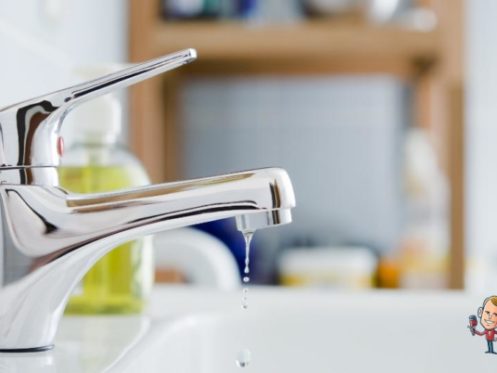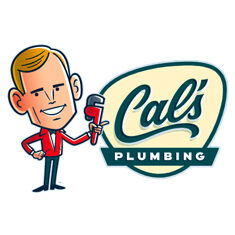If you’ve recently noticed that your water doesn’t taste great or that unsightly sediment is building up near your drains, it’s likely that the water that runs through your home is “hard water.” While this type of water isn’t unhealthy to drink, it leads to many other frustrating issues including an unpleasant taste. There are, however, a couple of options you can use if you’d like to get rid of the hardness in water for good. Water conditioners and water filters deliver cleaner and better-tasting water.
What Is Hard Water?
Hard water is simply water that contains high levels of magnesium and calcium. If you’ve recently noticed some water spots on your utensils or glasses, these blemishes are caused by hard water. The same is true if you detect soap scum on your shower door or bathtub. These unsightly problems are difficult to clean and become an annoyance. The level of concentration of magnesium and calcium will determine how severe these issues are.
Not only does hard water create an unpleasant taste, but it also leads to inefficiency when attempting to clean things around the house. Over time, an ample amount of water can be wasted as well. It’s also possible for mineral deposits to form while water is heated, which may impact a water heater’s efficiency.
What Are Water Conditioners?
Water conditioners are able to get rid of magnesium and calcium minerals to effectively soften the water that gets sent into your home. Since these systems solely focus on getting rid of magnesium and calcium, they don’t get remove all of the contaminants. During the industrial water treatment process, most municipal facilities perform water conditioning or softening alongside water filtration.
By getting rid of magnesium and calcium, the appliances in your home that use water should experience a boost in efficiency. You can also reduce the amount of money you spend on cleaning supplies. While the main issues of hard water involve stains on glasses and certain surfaces, this type of water can also cause hair and skin to become irritated. This means that softening the water helps improve the condition of your skin and hair.
These devices can use salt to alter water properties. In comparison, filtration systems employ several different methods to reduce contaminant levels and make the water tastier to drink.
Water softeners are similar to magnets. Let’s say that you have two magnets with negative and positive ends. If you attempt to connect the two positive ends, the magnets will repel each other. When the positive and negative ends of two magnets are connected, they should snap together.
Magnesium and calcium are two positively charged molecules. Water conditioners are outfitted with filters that contain negatively charged resin beads. When the molecules pass through the filter, they are immediately attracted to the resin beads. This ensures that all of these molecules are captured.
Some of the more common signs of hard water that you should be on the lookout for include mineral-like crust near your showerhead or faucets, stiff clothing after doing a load of laundry, dull hair after you take a shower, and soap scum on your shower walls or sinks.
What Are Water Filters?
While water conditioners get rid of hard minerals like magnesium and calcium, they don’t filter out other contaminants that could be present in your home’s water. In comparison, water filters are designed to get rid of most contaminants and pollutants that can be found in water. These filters can be attached to faucets or water pitchers. You could also obtain a whole-house filtration system if you want to have your water filtered at the source.
If your home has a water conditioner but no filtration system, you could still be drinking and bathing in such chemicals and contaminants as:
- Bacteria
- Micro-plastics
- Chlorine byproducts
- Heavy metals
Whole-house filtration systems will be installed at the point of entry in your home, which means that every showerhead and tap will benefit from filtered water. If you have a whole-house filtration system installed in your home, the process begins when water enters your home and is sent through a pre-filter, during which all large impurities are removed.
This water is then filtered for volatile organic chemicals and chlorine. Next, the water will be taken through an activated carbon filter to remove contaminants like herbicides, pesticides, and copper. The final stage in this process involves the polishing filtration stage, which gets rid of all remaining organic particles and sediment.
Which Water Treatment Solution Is Better?
If you believe that the water in your home consists of high concentrations of magnesium and calcium, a water conditioner may be needed. These systems can be salt-based or salt-free depending on contaminant levels. Salt-free water conditioners are ideal for homes where the water is only slightly hardened.
While water conditioners are effective at softening water, they don’t make water healthy or safer to consume. If you want to get rid of contaminants to make your water safer for cooking, showering, and drinking, a water filter is required. If your main goal is to remove harmful contaminants, water filters are better solutions than water conditioners. However, the best option may be to obtain both of these systems to keep your water free from contaminants and the minerals that cause hard water.
Keep in mind that certain types of water filtration systems offer superior results. For instance, reverse osmosis filtration systems lower the concentration of total dissolved solids and contaminants by more than 99%. If you’d like to select a water conditioner or softener, the salt-free variety requires less maintenance, won’t remove the healthy minerals in your water, and is friendlier to the environment.
There are a few scenarios that can help you determine which system is right for you and your home. If you notice white spots on your dishes or dry skin, consider a water conditioner. When your water is cloudy and impure, a standard water filter should provide you with the results you’re looking for.
When you spot rust stains or a rotten egg odor, the water filter you choose should be able to filter out the iron. In the event that chemical odors, chlorine, and chloramines are found in your water, the water filter should be outfitted with an activated carbon filter. The presence of ample amounts of organic compounds and toxins means that a reverse osmosis system might be the ideal solution.
Having a water conditioner or whole-house water filter installed requires the skills and experience of reputable plumbers like ours. At Cal’s Plumbing, we can help you select the right water treatment system and install it once a purchase has been made. Homeowners in Tucson, AZ and surrounding areas should also look into the many other plumbing services we offer. These services include everything from plumbing inspections and installations to slab leak repair and kitchen plumbing services. You can also request our drain cleaning, repair, and installation services. If you want to have a water filter or conditioner installed, contact Cal’s Plumbing today to get started!






